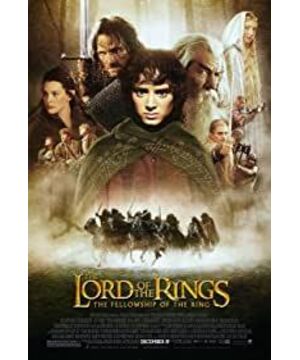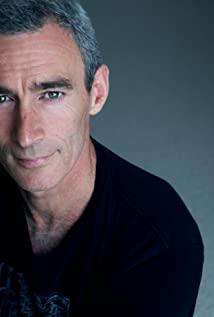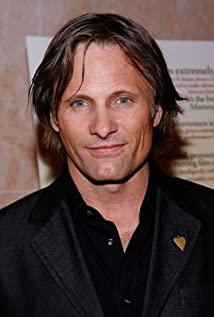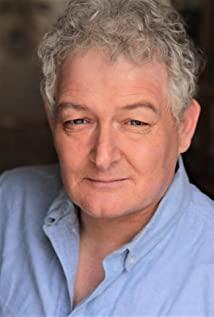Like many epic myths, "The Lord of the Rings" tells the story of Taoism and Virtue with its own understanding of the world as its context. The struggle between good and evil is its fundamental theme. "The Lord of the Rings" expresses a clear concept of good and evil, and the concept of goodness is embedded in the moral law, which is expressed as sublime. This sublime has the effect of determining or guiding life and death, it limits the degree between existence and nothingness, and meaning is expressed after this limit. However, the moral law is not the truth and does not really determine the activities of each survivor. Therefore, the moral law is actually just a noble basis for nothingness. To be sublime towards nothingness outside of morality is vain; for biological vitality, if sublime is really necessary, then only nihility is sublime...
[Moral Figures] The review of "The Lord of the Rings" here starts with this reasonable and not so reliable idea: the figures of elves, humans, dwarves, hobbits and other races indicate their respective morals Identity and ability. The elves are tall, showing a bright posture. They are morally tall and possess pure knowledge, or the elves are representatives of pure science. Humans do not have particularly significant body characteristics, which indicates that humans can be morally tall or short, and there is no particularly significant moral situation. This also means that humans have no unwavering moral position and may be easily affected and changed. . Human beings are most vulnerable to influence from power, so it can be said that human beings are representatives of politics. The dwarves are short and stout, with beards and hairs. They are morally short. There is more than one moral comment about dwarves in the Lord of the Rings story: dwarves are greedy and blind; they only like to dig treasures in caves or underground, and never care about the difficulties of others... These moral dwarves are proficient in excavation, casting, and construction.术 etc. From these evaluations and descriptions, it can be seen that the dwarves have excellent technical capabilities, and they are representatives of technical personnel. From the fact that dwarves generally have more beards and hairs, even females are no exception. It can be seen that these people who are obsessed with technology lack the characteristics of femininity. In short, the elves, humans, and dwarves respectively represent the glamorous, ordinary and dwarf in moral status; they respectively represent the three aspects of ability, namely science, politics and technology. Regardless of the difference in moral identities of these races, they are all flawed. Their common flaws are brought out by the power of the Lord of the Rings; such common flaws are precisely those of science, politics, and technology. The shortcomings of the three. What the Lord of the Rings possesses is a certain state outside of morality, a state of being on the other side of good and evil. Regarding the state implied by the Lord of the Rings, this question will be considered later. First consider the moral identity of the Hobbit who played a key role in the story of the Lord of the Rings. Hobbits are also short in stature, which shows that they are also morally short, but hobbits are not as technically proficient or lack femininity as dwarves, and the hobbits are not accused of morality in the Lord of the Rings story. defect. The moral dwarf represented by the Hobbit is different from the dwarf race, which is a relatively neutral moral dwarf. Hobbits are not as greedy and blind as dwarves, specializing in technology and obsessed with treasures. The moral shortness of hobbits lies in their greed for pleasure and enthusiasm for the comfort of material life; their narrow vision is mainly manifested in their concern for personal happiness. , I also tend to be indifferent to the chaos outside of my personal life circle. In a nutshell, the shortness of the Hobbit's moral status is that they have no pursuit of greatness or profoundness. They live in an environment like heaven and blessings, they are isolated from the world, live and work in peace and contentment, and their lives reflect the morality of "a small country with few people". When looking at the moral situation of the Hobbits, although it can be said that they are small in the moral sense, it is somewhat inappropriate to say that they are good or evil. When there is no evil, there is no good, and the Hobbits are in a situation before good and evil, or in the Garden of Eden, they have not yet eaten the fruit of the tree of good and evil; there is no science, technology, or politics. Eroded to their natural status. The Hobbits have not yet entered the moral turbulence. They will not advance or retreat. They will not be either good or evil. They are still on the side of morality, but they are not in morality, but before morality. The Hobbit’s lifestyle is actually a reflection of the original happy life ideals in people’s hearts. It is difficult for later moral values to criticize this concept of primitive happiness, and this concept of primitive happiness does not have moral superiority. In the world view of the Lord of the Rings, half orcs and strong orcs as the evil side have no moral status. The reason for this is not because they are animals or appear to be animals, but because they have no souls. Creations such as half-orcs are deliberately set to be soulless, so that the act of killing them does not encounter moral difficulties, and discussing their moral status becomes a question of not being disturbed. In the first part of the movie "The Lord of the Rings", the plot interprets creations such as half-orcs as elves that are strongly distorted by the dark, and in this way, half-orcs and others seem to have souls; this setting is more suitable for the kind of relative The ethics of ism is the kind of morality that thinks that one school is good and the enemy is evil. If you regard creations such as half-orcs as animals, then disregarding their moral status will contradict animal rights, and it does not conform to the ecological care of the Lord of the Rings story itself. Only when half-orcs and others are regarded as creations without souls can they achieve broad internal consistency with the worldview of the Lord of the Rings (a worldview of Christian ethics). Creations such as half-orcs have no moral status, which also has moral implications, that is, pure evil cannot create a soul. According to Christian ethics, especially Saint Augustinism, evil is the lack of good. Only the Creator can create the good, and the behavior of the Creator can be good. If goodness is an attribute of the soul, then pure evil as the lack of goodness also lacks the soul. Living and working in peace and contentment, their lives show the morality of "a small country and few people". When looking at the moral situation of the Hobbits, although it can be said that they are small in the moral sense, it is somewhat inappropriate to say that they are good or evil. When there is no evil, there is no good, and the Hobbits are in a situation before good and evil, or in the Garden of Eden, they have not yet eaten the fruits of the tree of good and evil; there is no science, technology, or politics. Eroded to their natural status. The Hobbits have not yet entered the moral turbulence. They will not advance or retreat. They will not be either good or evil. They are still on the side of morality, but they are not in morality, but before morality. The Hobbit’s lifestyle is actually a reflection of the original happy life ideals in people’s hearts. It is difficult for later moral values to criticize this concept of primitive happiness, and this concept of primitive happiness does not have moral superiority. In the world view of the Lord of the Rings, half orcs and strong orcs as the evil side have no moral status. The reason for this is not because they are animals or appear to be animals, but because they have no souls. Creations such as half-orcs are deliberately set to be soulless, so that the act of killing them does not encounter moral difficulties, and discussing their moral status becomes a question of not being disturbed. In the first part of the movie "The Lord of the Rings", the plot interprets creations such as half-orcs as elves that are strongly distorted by the dark, and in this way, half-orcs and others seem to have souls; this setting is more suitable for the kind of relative The ethics of ism is the kind of morality that thinks that one school is good and the enemy is evil. If you regard creations such as half-orcs as animals, then disregarding their moral status will contradict animal rights, and it does not conform to the ecological care of the Lord of the Rings story itself. Only when half-orcs and others are regarded as creations without souls can they achieve broad internal consistency with the worldview of the Lord of the Rings (a worldview of Christian ethics). Creations such as half-orcs have no moral status, which also has moral implications, that is, pure evil cannot create a soul. According to Christian ethics, especially Saint Augustinism, evil is the lack of good. Only the Creator can create the good, and the behavior of the Creator can be good. If goodness is an attribute of the soul, then pure evil as the lack of goodness also lacks the soul. Living and working in peace and contentment, their lives show the morality of "a small country and few people". When looking at the moral situation of the Hobbits, although it can be said that they are small in the moral sense, it is somewhat inappropriate to say that they are good or evil. When there is no evil, there is no good, and the Hobbits are in a situation before good and evil, or in the Garden of Eden, they have not yet eaten the fruit of the tree of good and evil; there is no science, technology, or politics. Eroded to their natural status. The Hobbits have not yet entered the moral turbulence. They will not advance or retreat. They will not be either good or evil. They are still on the side of morality, but they are not in morality, but before morality. The Hobbit’s lifestyle is actually a reflection of the original happy life ideals in people’s hearts. It is difficult for later moral values to criticize this concept of primitive happiness, and this concept of primitive happiness does not have moral superiority. In the world view of the Lord of the Rings, half orcs and strong orcs as the evil side have no moral status. The reason for this is not because they are animals or appear to be animals, but because they have no souls. Creations such as half-orcs are deliberately set to be soulless, so that the act of killing them does not encounter moral difficulties, and discussing their moral status becomes a question of not being disturbed. In the first part of the movie "The Lord of the Rings", the plot interprets creations such as half-orcs as elves that are strongly distorted by the dark, and in this way, half-orcs and others seem to have souls; this setting is more suitable for the kind of relative The ethics of ism is the kind of morality that thinks that one school is good and the enemy is evil. If you regard creations such as half-orcs as animals, then disregarding their moral status will contradict animal rights, and it does not conform to the ecological care of the Lord of the Rings story itself. Only when half-orcs and others are regarded as creations without souls can they achieve broad internal consistency with the worldview of the Lord of the Rings (a worldview of Christian ethics). Creations such as half-orcs have no moral status, which also has moral implications, that is, pure evil cannot create a soul. According to Christian ethics, especially Saint Augustinism, evil is the lack of good. Only the Creator can create the good, and the behavior of the Creator can be good. If goodness is an attribute of the soul, then pure evil as the lack of goodness also lacks the soul. Before good and evil, or in the Garden of Eden, they have not yet eaten the fruits of the tree of good and evil; there is no science, technology, or politics that has eroded their natural status. The Hobbits have not yet entered the moral turbulence. They will not advance or retreat. They will not be either good or evil. They are still on the side of morality, but they are not in morality, but before morality. The Hobbit’s lifestyle is actually a reflection of the original happy life ideals in people’s hearts. It is difficult for later moral values to criticize this concept of primitive happiness, and this concept of primitive happiness does not have moral superiority. In the world view of the Lord of the Rings, half orcs and strong orcs as the evil side have no moral status. The reason for this is not because they are animals or appear to be animals, but because they have no souls. Creations such as half-orcs are deliberately set to be soulless, so that the act of killing them does not encounter moral difficulties, and discussing their moral status becomes a question of not being disturbed. In the first part of the movie "The Lord of the Rings", the plot interprets creations such as half-orcs as elves that are strongly distorted by the dark, and in this way, half-orcs and others seem to have souls; this setting is more suitable for the kind of relative The ethics of ism is the kind of morality that thinks that one school is good and the enemy is evil. If you regard creations such as half-orcs as animals, then disregarding their moral status will contradict animal rights, and it does not conform to the ecological care of the Lord of the Rings story itself. Only when half-orcs and others are regarded as creations without souls can they achieve broad internal consistency with the worldview of the Lord of the Rings (a worldview of Christian ethics). Creations such as half-orcs have no moral status, which also has moral implications, that is, pure evil cannot create a soul. According to Christian ethics, especially Saint Augustinism, evil is the lack of good. Only the Creator can create the good, and the behavior of the Creator can be good. If goodness is an attribute of the soul, then pure evil as the lack of goodness also lacks the soul. Before good and evil, or in the Garden of Eden, they have not yet eaten the fruits of the tree of good and evil; there is no science, technology, or politics that has eroded their natural status. The Hobbits have not yet entered the moral torrent. They will not advance or retreat. They will not be either good or evil. They are still on this side of morality, but not in morality, but before morality. The Hobbit’s lifestyle is actually a reflection of the original happy life ideals in people’s hearts. It is difficult for later moral values to criticize this concept of primitive happiness, and this concept of primitive happiness does not have moral superiority. In the world view of the Lord of the Rings, half orcs and strong orcs as the evil side have no moral status. The reason for this is not because they are animals or appear to be animals, but because they have no souls. Creations such as half-orcs are deliberately set to be soulless, so that the act of killing them does not encounter moral difficulties, and discussing their moral status becomes a question of not being disturbed. In the first part of the movie "The Lord of the Rings", the plot interprets creations such as half-orcs as elves that are strongly distorted by the dark, and in this way, half-orcs and others seem to have souls; this setting is more suitable for the kind of relative The ethics of ism is the kind of morality that thinks that one school is good and the enemy is evil. If you regard creations such as half-orcs as animals, then disregarding their moral status will contradict animal rights, and it does not conform to the ecological care of the Lord of the Rings story itself. Only when half-orcs and others are regarded as creations without souls can they achieve broad internal consistency with the worldview of the Lord of the Rings (a worldview of Christian ethics). Creations such as half-orcs have no moral status, which also has moral implications, that is, pure evil cannot create a soul. According to Christian ethics, especially Saint Augustinism, evil is the lack of good. Only the Creator can create the good, and the behavior of the Creator can be good. If goodness is an attribute of the soul, then pure evil as the lack of goodness also lacks the soul. What moral status. The reason for this is not because they are animals or appear to be animals, but because they have no souls. Creations such as half-orcs are deliberately set to be soulless, so that the act of killing them does not encounter moral difficulties, and discussing their moral status becomes a question of not being disturbed. In the first part of the movie "The Lord of the Rings", the plot interprets creations such as half-orcs as elves that are strongly distorted by the dark, and in this way, half-orcs and others seem to have souls; this setting is more suitable for the kind of relative The ethics of ism is the kind of morality that thinks that one school is good and the enemy is evil. If you regard creations such as half-orcs as animals, then disregarding their moral status will contradict animal rights, and it does not conform to the ecological care of the Lord of the Rings story itself. Only when half-orcs and others are regarded as creations without souls can they achieve broad internal consistency with the worldview of the Lord of the Rings (a worldview of Christian ethics). Creations such as half-orcs have no moral status, which also has moral implications, that is, pure evil cannot create a soul. According to Christian ethics, especially Saint Augustinism, evil is the lack of good. Only the Creator can create the good, and the behavior of the Creator can be good. If goodness is an attribute of the soul, then pure evil as the lack of goodness also lacks the soul. What moral status. The reason for this is not because they are animals or appear to be animals, but because they have no souls. Creations such as half-orcs are deliberately set to be soulless, so that the act of killing them does not encounter moral difficulties, and discussing their moral status becomes a question of not being disturbed. In the first part of the movie "The Lord of the Rings", the plot interprets creations such as half-orcs as elves that are strongly distorted by the dark, and in this way, half-orcs and others seem to have souls; this setting is more suitable for the kind of relative The ethics of ism is the kind of morality that thinks that one school is good and the enemy is evil. If you regard creations such as half-orcs as animals, then disregarding their moral status will contradict animal rights, and it does not conform to the ecological care of the Lord of the Rings story itself. Only when half-orcs and others are regarded as creations without souls can they achieve broad internal consistency with the worldview of the Lord of the Rings (a worldview of Christian ethics). Creations such as half-orcs have no moral status, which also has moral implications, that is, pure evil cannot create a soul. According to Christian ethics, especially Saint Augustinism, evil is the lack of good. Only the Creator can create the good, and the behavior of the Creator can be good. If goodness is an attribute of the soul, then pure evil as the lack of goodness also lacks the soul.
View more about The Lord of the Rings: The Fellowship of the Ring reviews











